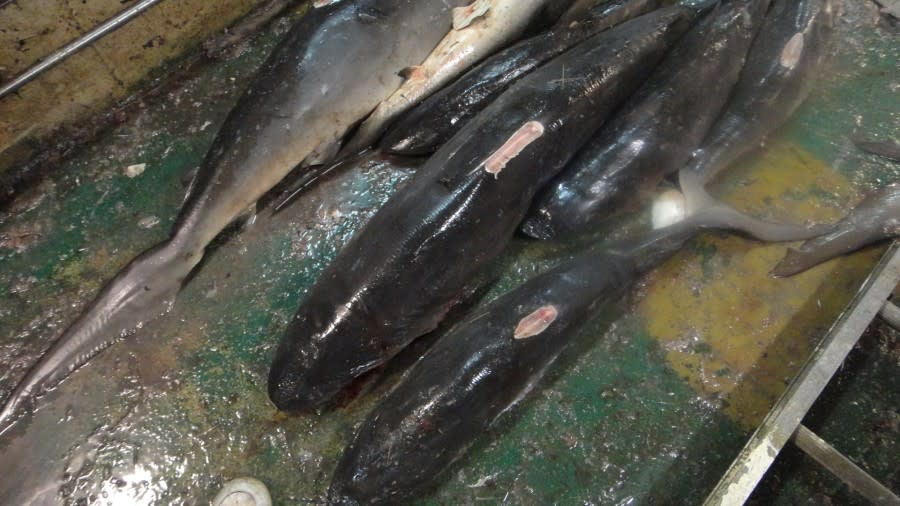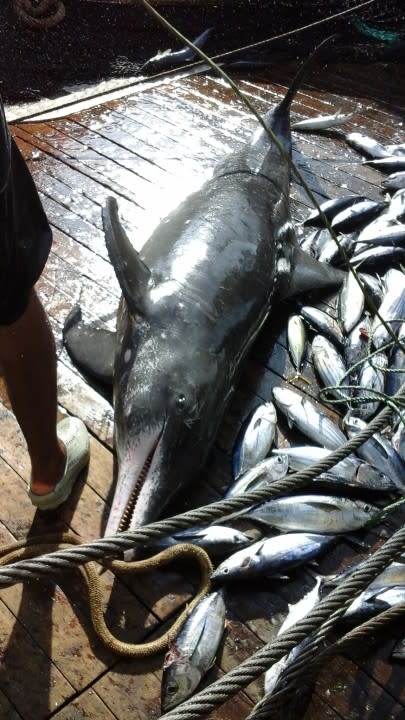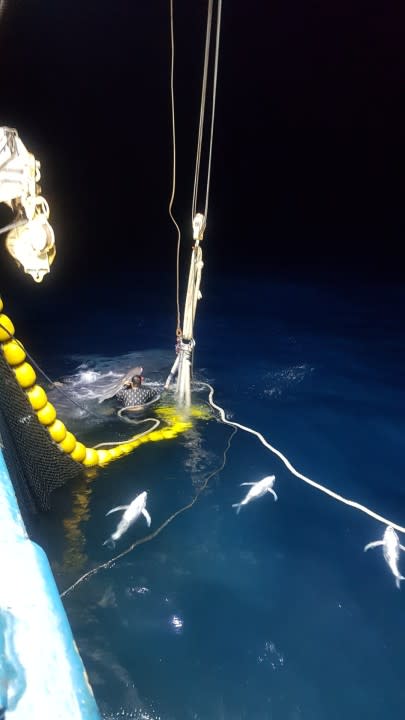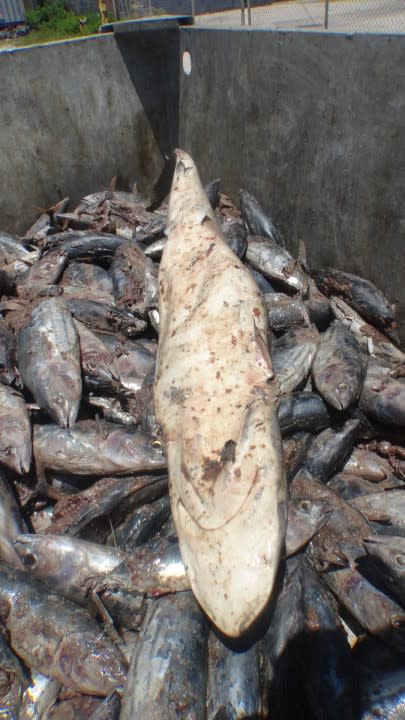Is sustainable seafood truly sustainable?
Story at a glance
U.K. marine conservation charity Shark Guardian has recently exposed potential shark finning and other malpractices on MSC-certified tuna fishing vessels in the Western and Central Pacific Ocean.
This runs contrary to the commitment made in 2011 by the MSC board to ensure that fisheries engaged in shark finning would not be eligible for MSC certification.
More than 3 billion people depend on marine and coastal biodiversity for their livelihoods.
In 2021, the popular — and highly divisive — Netflix documentary, “Seaspiracy,” highlighted the significant environmental impact of the fishing industry and put into question whether seafood products could be described as truly sustainable. Although its claims have since been contested by several scientists and conservationists, the film has brought to the fore the potential shortcomings of sustainable seafood labels, including that by the Marine Stewardship Council (MSC).
The MSC is the world’s largest fishing certification program with its widely known blue tick sustainability label and its certified fisheries representing around 17 percent of the world’s total wild marine harvest. With more than a third of the world’s fish stocks currently fished at an unsustainable level, the MSC aims to combat overfishing by encouraging consumers to choose seafood that’s caught sustainably. Sustainable fishing refers to practices which ensure healthy fish stocks and the long-term survival of marine and freshwater ecosystems and wildlife.
The MSC assesses fisheries against 28 performance indicators under the three principles of the MSC Fisheries Standard – sustainability of the stock, ecosystem impacts, including the protection of other species and habitats, and effective management. 60 out of 100 is a minimum acceptable score to get certified but if a fishery scores below 80, conditions of improvement will be put in place such as reducing bycatch or improving fishery management. Fisheries are then audited annually and the certificate is reassessed every five years, including whether it has fulfilled its conditions of improvement.
Allegations of shark finning on MSC-certified vessels
U.K. marine conservation charity Shark Guardian has, however, recently exposed potential shark finning and other malpractices on MSC-certified tuna fishing vessels in the Western and Central Pacific Ocean. This runs contrary to the commitment made in 2011 by the MSC board to ensure that fisheries engaged in shark finning would not be eligible for MSC certification.
Photos from the report, conducted in partnership with sustainability consulting firm CNS Global Consulting, show numerous carcasses of silky sharks with their fins removed, as well as discarded whale sharks, giant manta rays and devil rays.

Some of the other incidents identified by the investigation include fishing nets being deliberately cast close to whale and whale shark populations, and bycatch of sharks and cetaceans ending up dead and discarded due to negligence.
If protected species are caught unintentionally but are released immediately and in a responsible manner that would cause as little harm to them as possible, the case would not be viewed as a violation of the MSC standard. However, if they are neglected, left to die onboard or in the net, or if fishing nets are set in their close proximity, these incidents would be considered infringements.
Observer reports of these incidents and other violations of the MSC standard were routinely ignored by the Conformity Assessment Bodies (CABs), the independent auditing entities of the MSC standard, the investigation alleged.
Upon being notified of the report, the MSC has asked Assurance Services International (ASI), the accreditation body overseeing its third-party certification activities, to investigate the claims raised by the report. Additional audits are also conducted of the fisheries referenced in the report in the Solomon Islands and the PNA region.
“This investigation will include a full examination of the evidence presented in the report and include ASI witnessing any expedited audits triggered by new information in the report to determine whether the fisheries are complying with the requirements of the MSC Fisheries Standard. Reports from these witness assessments will be made public,” shared a spokesperson from the MSC.

“Should evidence that fisheries have failed to fully meet the requirements of MSC certification be found as part of these reviews, outcomes for the fisheries may be the addition of conditions of certification, suspension or the removal of the vessel responsible.”
According to the MSC, the period covered by the Shark Guardian investigation predates its new requirements introduced in 2020 which would suspend fisheries engaged in shark finning unless the offending vessel is removed from the certificate. Any organization which had been convicted of shark finning in the previous two years would also not be eligible for MSC certification.
Previously, fisheries would only need to demonstrate the likelihood that there was no shark finning taking place on their vessels through external validation or the existence of relevant policies or regulations.
“We will patiently wait for the outcome of the ASI/MSC investigation which ASI has told us should be wrapped up in mid-September. Until that time, we are willing to give the benefit of the doubt to the MSC process,” said Alex Hofford, Marine Wildlife Campaigner and Trustee at Shark Guardian.
Separately, in June 2022, following four years of review, the MSC board has approved a new Fisheries Standard, introducing a Fins Naturally Attached policy as a prerequisite for certification. The policy mandates all fisheries that retain sharks to land them with their fins still attached to the body. The MSC said that the policy would contribute to further strengthening its efforts to ensure that no shark finning occurs within its certified fisheries.
“As regards the new MSC Standard, I worry that the failure to remove loopholes, address systemic conflicts of interest between CABs and those fishery clients who pay them, will result in a dismal failure to deliver urgently needed improvements on the water to put an end to the practice of environmentally damaging and polluting fisheries being certified when they clearly should not, and will not protect endangered, threatened and protected species,” commented Hofford.

Challenges of sustainable seafood certification
The Shark Guardian investigation is not the first to scrutinize the legitimacy of the sustainable seafood label. MSC has come under increased pressure in recent years both for not being stringent enough in its certification process, and for being inaccessible to smaller-scale fisheries who would not have the resources to get certified. The MSC has responded that it has programs in place to support fisheries which “lack the evidence, governance or practices needed to achieve MSC certification,” including small-scale fisheries and fisheries in developing countries.
Others have highlighted the insufficient requirements put in place to incentivize fisheries to reduce or eliminate bycatch of endangered species, its inability to police compliance with its standard, and that commercial motives take precedence over sustainability considerations in the design of the MSC standard.
“The MSC is one of many organisations working to influence and safeguard our oceans,” said the MSC. “We aim to bring disparate groups together using a science-based standard to help drive recognition for sustainable fisheries and market demand for their catch. Our programme is voluntary. We do not, and cannot, take the place of strong ocean governance by international government bodies – the Regional Fisheries Management Organizations — which are responsible for setting and policing regulations which ensure ongoing sustainability of fishing operations.”

Reforming sustainable seafood
Boycotting labels such as the MSC or stopping the consumption of seafood altogether — one of the underlying messages of “Seaspiracy” — however, could have unintended consequences for the more than 200 million people employed by marine fisheries directly or indirectly. With over three billion people depending on marine and coastal biodiversity for their livelihoods, it’s more critical than ever to reform the way the fishing industry operates in general and sustainability certifications in particular, advocates say.
Importantly, for certified sustainable seafood to become a truly trusted concept would require a more robust definition of what’s considered sustainable, including more precautionary catch limits and harvest quotas for fish species, and increased accountability over how fish are caught and bycatch is mitigated, advocates say.
Trang Chu Minh previously wrote about shark conservation.
For the latest news, weather, sports, and streaming video, head to The Hill.

